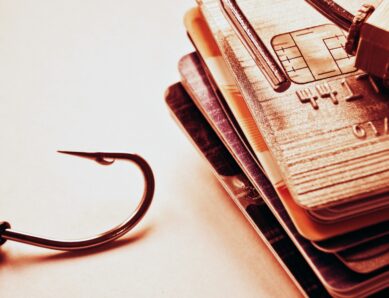Keeping ourselves safe in the online world has never been more important, given the vast amounts of time that we spend pinging messages, checking our bank balances, buying products, and searching for information.
We might be subject to malware attacks, hacks, and scams. And the growing “internet of things” has exposed us to even greater risks, further increasing our need for vigilance.
But we’re not powerless against these threats. So, here are five simple steps that you can take to help keep yourself safe online.
1. Keep Everything Under Lock and Key
No online security issue deserves more attention than your passwords, or more precisely, their creation. Crooks are still using that age-old technique of guessing what a password might be – and succeeding. So, never use obvious, easy-to-guess passwords such as password, password1, 1234, or 0000.
One approach to generating more secure passwords is to combine small elements from several highly personal aspects of your life. They could be your favorite film star, your age and your partner’s age when you met, and your favorite book. In other words, Eastwood3439Catch.
Avoid using one password for multiple accounts. Instead, create strong, unique passwords for each site or service you visit. Then, if someone does guess it, you’ll only have one security breach to deal with.
But it’s hard to remember more than a handful of passwords, so use a password manager to store them safely. This kind of service can also create passwords that are based on a random mix of characters, rather than real words, which protects them from discovery by dictionary-based software.
2. Stay Up To Date
Viruses and scams are evolving all the time. For example, “ransomware” is growing in popularity among the online criminal fraternity, and has caused havoc for millions of people this year alone!
But the manufacturers of your hardware and software will likely help to keep you safe, if you let them. Install their updates promptly, including the ones for your antivirus package, and you’ll be far better protected against the relentless wave of threats. Yes, we know it’s a chore, and it can get in the way of your working day, so you might be tempted to skip it. Don’t. Instead, take control and schedule the update for a time that won’t disturb you, or enable automatic updates to make sure you get the job done.
3. Be Alert
Pay attention when you’re about to click on a link, particularly when you’re looking through emails. A growing proportion of scams derive from so-called “phishing” attacks. These can trick even the most sensible and cautious of people into revealing sensitive information by masquerading as legitimate warnings or requests. If in doubt, trash the message and contact the alleged sender using their official contact details, to ask for clarification.
Be extremely wary of any emails that arrive in your inbox containing a “free offer” or a “once in a lifetime” opportunity. As a general rule, if something seems too good to be true, it is!
At best, these emails will be harmless spam which has slipped through your privacy settings, or links to websites offering celebrity-based clickbait. At worst, they’ll contain an attachment loaded with a virus, ready to embed itself in your machine and harvest as much of your personal information as it can.
4. Protect Your Mobile Life
Our smartphones, tablets and phablets contain vast amounts of personal information, neatly packaged for any would-be thief. So, make sure you keep your devices safe in the offline world. For example, don’t leave them on café tables (even for a few seconds), or hang your open bag on the back of a chair.
And never teach your mobile devices your passwords! Even when you’ve set a PIN or fingerprint scan to unlock the screen, play it safe with each app, too. It’s a pain having to log in every time, but it’s a price worth paying for better security.
Take care when you’re downloading apps. Have users highlighted any security issues? A few minutes of research can save you a lot of trouble. The safest option is to only download from official app stores, but still do your homework.
Be suspicious if you receive a link via text or a messaging service “out of the blue,” from a source you’ve never heard of. You can’t be sure where it will take you, so just delete it.
5. Value Your Privacy
Try to resist the urge to share personal data publicly. To do so can risk someone constructing a fake online persona based on yours, or accessing other accounts using your information to answer security questions.
Remember that anything you share will likely be impossible to remove, so choose wisely! And be aware that you may be sharing more than you intend to. For example, when you’re proudly posting images of your new car, do the photos also reveal your house number or street name?
Lastly, bear in mind that over-sharing can also affect your online reputation or your ability to build online rapport with clients or colleagues. You could damage your personal brand, or create doubts about your employer’s brand and values, and this could be just as dangerous to your career as suffering a cyber attack.
Give Us Your Thoughts
Do you have any other suggestions for staying safe and secure online? Have your say and share your experiences by adding your comments in the box below.




Comments
Vivek says
7 years agoIn this digital era, everything is going online so it is necessary for us to stay safe, informative threats to think over, good article.
Midgie Thompson says
7 years agoIndeed Vivek, it is so important that we all pay attention to security online. No one is immune to the potential threat!